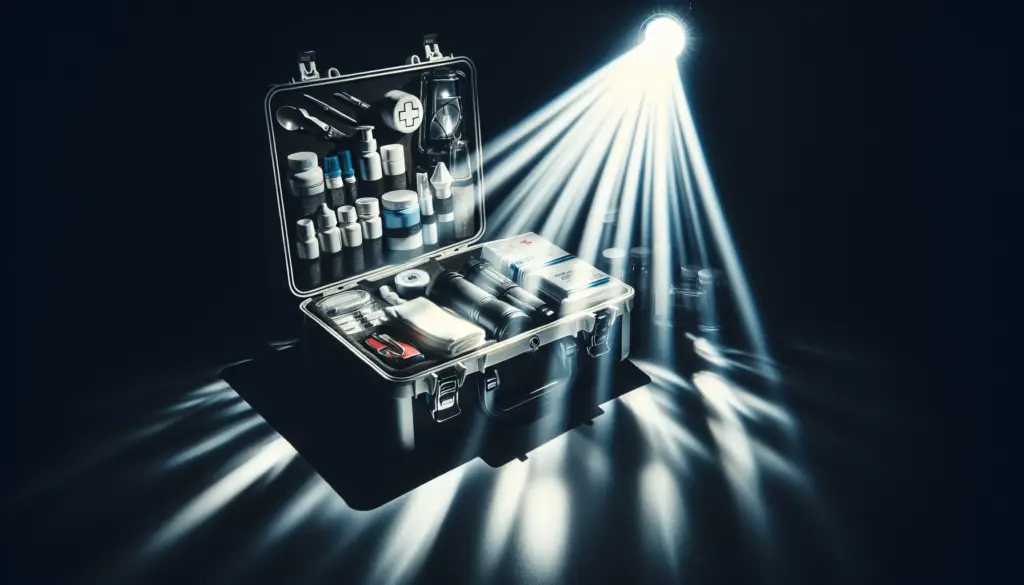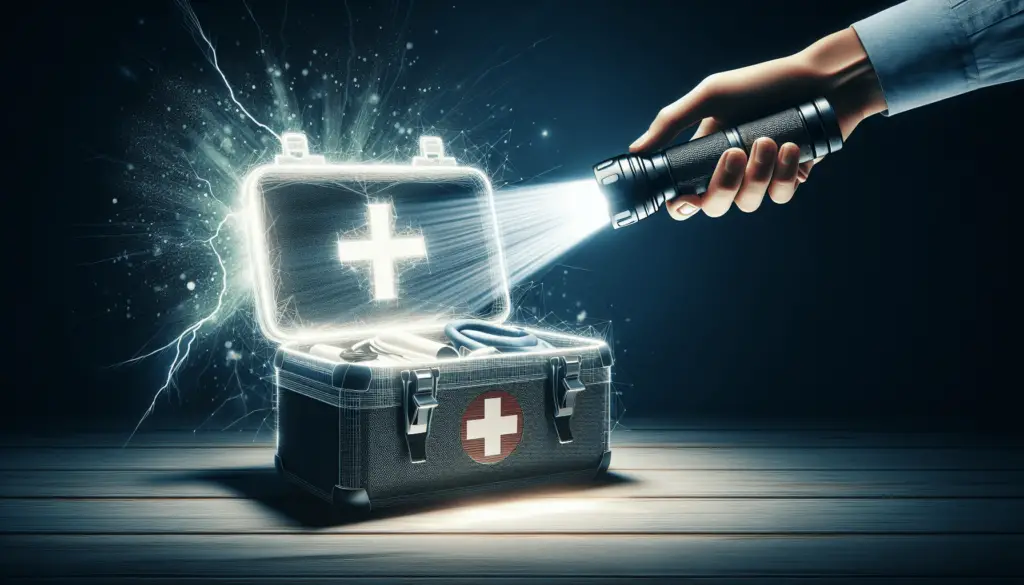Are you ready for a grid-down healthcare system?
Are you prepared for the possibility of a grid-down scenario where healthcare systems may be affected? It’s essential to have a plan in place to ensure you can take care of yourself and your loved ones in case of an emergency.

Understanding the grid-down healthcare system
In a grid-down scenario, essential services, including hospitals, clinics, and pharmacies, may be unavailable or limited. This can result from a variety of reasons, such as natural disasters, cyber attacks, or civil unrest. Understanding the challenges of a grid-down healthcare system is crucial for preparation.
The importance of prepping for healthcare emergencies
By being proactive and preparing for a grid-down healthcare system, you can increase your chances of surviving and thriving during a crisis. Having the right supplies, knowledge, and skills can make a significant difference in how well you can manage your health and well-being.
Building your healthcare emergency kit
One of the first steps in prepping for a grid-down healthcare system is to assemble a comprehensive emergency kit. This kit should contain essential items for treating injuries, illnesses, and other medical emergencies. Consider including the following items in your healthcare emergency kit:
| Item | Purpose |
|---|---|
| First aid supplies | For treating cuts, burns, and wounds |
| Prescription medications | For managing chronic conditions |
| Over-the-counter medications | For pain relief, allergies, and other common ailments |
| Personal hygiene products | For maintaining cleanliness and hygiene |
| Medical supplies and equipment | Such as thermometers, blood pressure monitors, and gloves |
Having a well-stocked healthcare emergency kit can help you respond effectively to medical emergencies during a grid-down scenario.
Developing a healthcare plan
In addition to having a healthcare emergency kit, it’s essential to develop a comprehensive healthcare plan for yourself and your family. This plan should include information on managing chronic conditions, accessing medical care, and communicating with healthcare providers during a crisis. Consider the following when developing your healthcare plan:
- Know your medical history and medications
- Identify alternative healthcare providers or resources
- Create a communication plan with family members and healthcare providers
- Stay informed about local healthcare resources and services
By having a detailed healthcare plan in place, you can navigate a grid-down healthcare system more effectively.

Maintaining your health and well-being
During a grid-down scenario, it’s essential to focus on maintaining your health and well-being to prevent illness and injury. Here are some tips for staying healthy in a grid-down healthcare system:
- Stay hydrated by drinking clean water and avoiding contaminated sources
- Eat a balanced diet with non-perishable foods that provide essential nutrients
- Practice good hygiene by washing your hands frequently and staying clean
- Get regular exercise by engaging in physical activities that keep you active
- Prioritize mental health by managing stress and practicing relaxation techniques
By taking care of your health and well-being, you can better cope with the challenges of a grid-down healthcare system.
Seeking alternative healthcare options
In a grid-down scenario, traditional healthcare services may be limited or unavailable. It’s essential to explore alternative healthcare options that can help you manage your health and well-being. Consider the following alternative healthcare options:
- Telemedicine services for remote consultations with healthcare providers
- Herbal remedies and natural treatments for common ailments and minor injuries
- Home remedies using household items for first aid and symptom relief
- Peer support groups for sharing information and resources on healthcare issues
- Community health clinics and emergency medical services for urgent care needs
By exploring alternative healthcare options, you can access the care you need even in a grid-down healthcare system.
Collaborating with your community
During a grid-down scenario, collaboration with your community can be crucial for accessing healthcare resources and support. By working together with neighbors, local organizations, and volunteers, you can enhance your resilience and ability to cope with healthcare challenges. Consider the following ways to collaborate with your community:
- Participate in community health initiatives and workshops
- Volunteer for local emergency response teams or medical aid organizations
- Share healthcare resources, information, and skills with neighbors
- Organize neighborhood health and wellness events to promote community well-being
- Support vulnerable populations, such as elderly individuals or individuals with disabilities, in accessing healthcare services
By collaborating with your community, you can strengthen your healthcare preparedness and response in a grid-down scenario.
Training and education for healthcare emergencies
To be better prepared for healthcare emergencies in a grid-down scenario, consider investing in training and education on medical skills and knowledge. By acquiring basic first aid, CPR, and emergency response training, you can respond effectively to injuries and medical emergencies. Additionally, staying informed about relevant healthcare topics and updates can help you make informed decisions during a crisis.
Monitoring and evaluating your healthcare preparedness
Regularly monitoring and evaluating your healthcare preparedness is essential for ensuring that you are ready for a grid-down healthcare system. Review your healthcare emergency kit, update your healthcare plan, and practice your response to medical emergencies regularly. By staying proactive and vigilant, you can adapt to changing circumstances and improve your readiness for healthcare challenges.
Conclusion
Preparing for a grid-down healthcare system requires planning, preparation, and collaboration with your community. By understanding the challenges, building your healthcare emergency kit, developing a healthcare plan, and exploring alternative options, you can enhance your resilience and ability to manage healthcare emergencies. Stay informed, stay prepared, and stay healthy in the face of uncertainty.
